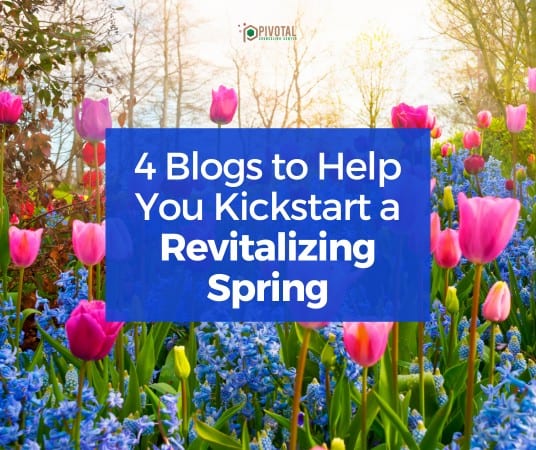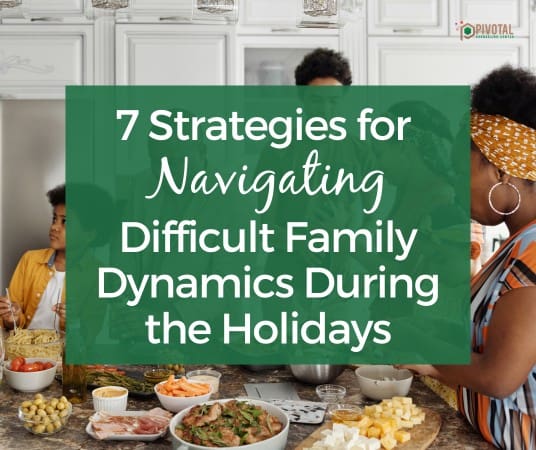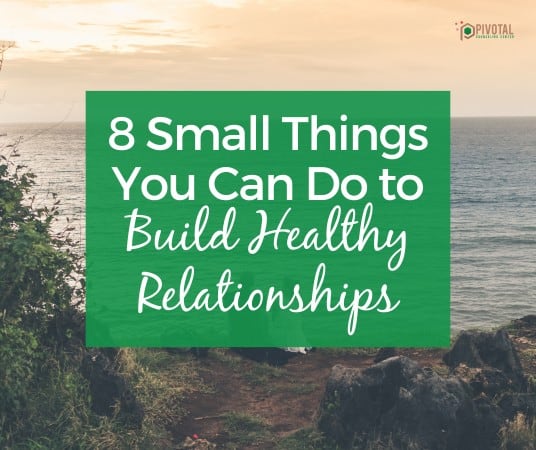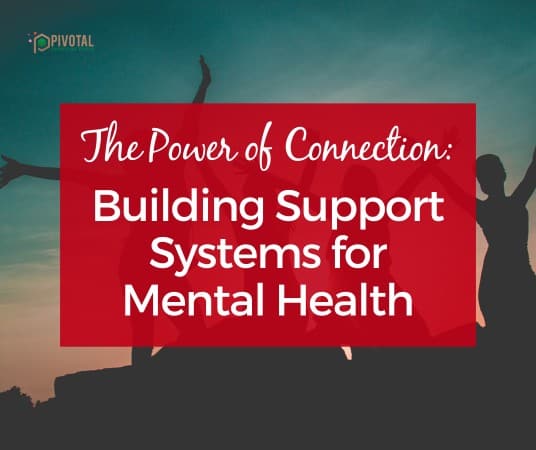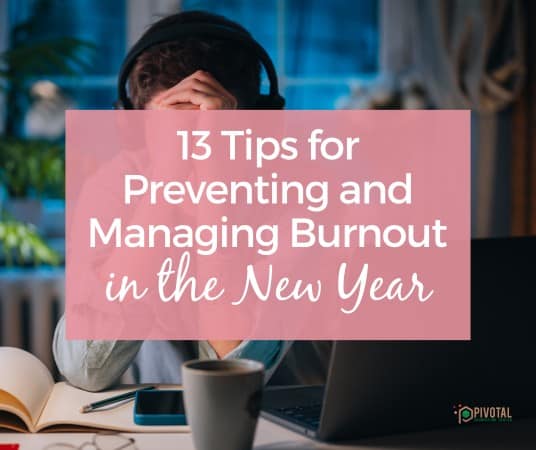
Do you feel burned out right now?
As the new year begins, it’s easy to feel overwhelmed by the pressure to set and achieve goals while still meeting the demands of everyday life. If you’re feeling exhausted, unmotivated, or stretched too thin to imagine turning over a new leaf in 2025, you may be experiencing burnout, and you’re not alone.
Burnout is a common issue in our culture, which tends to prioritize being busy and successful over honoring your capacity. If you’re feeling burned out, there are ways to both treat and prevent burnout so you can get back to feeling like your normal self again.
What does it mean to experience burnout?
Burnout isn’t just feeling tired. It’s a state of emotional, physical, and mental exhaustion that’s caused by prolonged stress. While it’s often associated with work, burnout can impact any area of your life. Parenting, caregiving, managing household responsibilities, or even social obligations can lead to burnout if you’re giving too much of yourself without replenishing your energy. Understanding that burnout isn’t limited to work can help you recognize it in your life and take steps to address it before it becomes overwhelming.
Some areas where burnout is common include:
- Parenting: Constantly caring for children without adequate breaks or support can leave parents feeling drained, physically and emotionally.
- Academia: Students of all ages can experience burnout from long hours of studying, managing extracurriculars, and working toward good grades.
- Relationships: Supporting a partner, family member, or friend through a tough time without prioritizing your own needs can be overwhelming and can leave you feeling depleted.
- Caregiving: Taking care of a loved one with health issues or disabilities often leads to physical and emotional fatigue.
We live in a culture that values productivity over rest. Many of us feel pressure to always be doing more, whether it’s at work, at school, or in our personal lives. When you combine these societal pressures with individual challenges like perfectionism, financial stress, or a lack of support, it makes sense that so many people experience burnout.
The good news is that, with deliberate action, burnout can be prevented. Here are some tips to help you protect your energy and well-being in the new year:
Practice setting boundaries
It’s just not going to be possible to do everything that is asked of you in life. This is why it’s important to know what your boundaries are and to communicate them. Practice saying “no” to commitments that don’t align with your priorities or capacity. It’s okay to protect your time and energy so you have some left for yourself.
Take regular breaks
Rest is essential for burnout prevention, and for our health in general, so make sure to split up your day with regular breaks. Working straight through the day with no breaks often means you end up feeling hungry, dehydrated, and depleted. See if you can schedule short breaks during your day to recharge. Even five minutes of deep breathing, stretching, or stepping outside can make a difference.
Be kind to yourself
Treat yourself with kindness and compassion, especially when you feel like you’re falling short. Remember, you’re only human. How would you respond to your best friend if they were in your situation? You’d probably encourage them to be nice to themselves. So be nice to yourself! It’s common to experience burnout, and there’s nothing wrong with you for feeling this way.
Prioritize rest in all its forms
Adequate sleep, downtime, and relaxation are essential for preventing burnout. Rest is not a luxury—it’s a necessity. There are different types of rest, so make sure you’re covering your bases and resting in different areas of your life. Physical rest, creative rest, social rest, spiritual rest, and mental rest are all different types of rest to make sure you’re getting. Do you regularly practice rest in any of these areas?
Talk about how you feel
Talking things over can help you wrap your head around what you’re going through, and help you feel less alone. Share your feelings with a trusted friend or family member. Isolation can worsen burnout, so building connections is key. Often, being open with someone about how you feel can help you feel seen, less stuck in a shame spiral, and more capable of dealing with your situation.
Make time for joy
Life isn’t just about work and what you can get done. It’s important to balance your time with things that bring you joy. What makes you happy or excited? What do you feel passionate about? Engage in activities that bring you happiness, whether it’s reading, drawing, moving your body, playing a sport, cuddling a pet, or simply spending time in nature. Making time for positive experiences can help act as a buffer during times of stress, so you’re not pouring from an empty cup.
Of course, prevention won’t help if you’re already burned out. If you’re currently experiencing burnout, here are some strategies to help you cope:
Recognize what you’re experiencing
Give yourself permission to acknowledge that you’re burned out and let yourself feel whatever feelings come up. Suppressing emotions often makes them worse. Try not to judge yourself for the feelings that come up, and validate yourself. Remind yourself that it makes sense that you feel this way. Learn what it’s like to listen to your capacity needs, instead of ignoring them the way we are encouraged to do. It might be helpful to write notes down in a journal about how you feel and what you’re noticing come up.
Practice relaxation strategies
Deep breathing exercises can calm your nervous system and provide immediate relief from stress. Progressive muscle relaxation is another way to help calm your body and mind down. There are tons of apps available that offer guided meditations and mindfulness exercises so you can find one that works for you, and then practice it until it feels like second nature. The more you practice, the easier it will be to use in a moment of emotional activation or overwhelm.
Do less
One reason why so many of us are burned out is that we’re all doing way too much, often to survive. If it’s possible for you to find a way to do less, work on that. Prioritize essential tasks and let go of what isn’t urgent. Focus on doing less, not more. Delegate tasks if you can. Ask for help from your loved ones and your community. Change your standards for what “good enough” actually means. Carve out time for yourself every day, and make sure to actually take it.
Explore what you’re passionate about
Think about what you’re passionate about to help guide your next steps. What feels exciting to you? What fills you with ideas or happiness? Finding something to be passionate about can be a powerful buffer in times of burnout. Excitement about something can spark curiosity and creativity, which can feel energizing and inspiring.
Take breaks, as often as possible.
Part of the problem with burnout is that you’re not meeting your own needs and resting as much as you need to. The only way to fix this is to start taking breaks when you can. Take your full lunch hour. Use all of your vacation and sick time. Set up designated screen-free time on a daily basis so you can gain some distance from the urgency of social media. Make rest, in its various forms, a non-negotiable part of your day, every day.
Offer yourself and others compassion.
Burnout can feel isolating, but it’s important to remember that you’re not alone. Many people are navigating the same challenges, and showing compassion—for yourself and others—can be incredibly healing. Remind yourself that you never know what someone else is going through, even when they act in frustrating ways. Offer yourself kindness when you’re struggling, and remind loved ones that it’s okay to slow down and take care of themselves too.
Get help from a mental health professional
Therapy can be a valuable resource for both preventing and managing burnout. A therapist can provide a safe space to explore your feelings, identify stressors, and create a plan to prioritize your well-being. They can also help you build skills like setting boundaries, managing stress, and practicing self-compassion so you can navigate all of your obligations while still taking care of yourself.
As we begin the new year, remember: Your worth is not tied to how much you accomplish or how much you do for others. You are deserving of respect, rest, and enjoyment simply because you are a human being. It’s okay to slow down, especially during the winter months when nature itself seems to rest.


